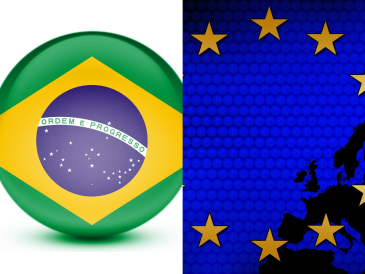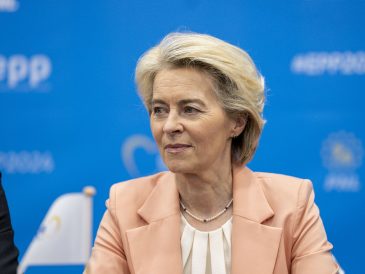Tractors at Saint-Etienne-de-Fontbellon during the French farmers’ protests in January 2024. Wikimedia Commons, CC BY-SA 4.0
The protests, although starting in France and Germany, have spread like wildfire across the continent. The European farmers’ protests have already extended to Italy, Spain, Poland, the Netherlands, Belgium, and other countries, becoming the biggest protest movement by European workers in years. Their protest is aimed at ending the policy of importing Ukrainian grain and opposing the new environmental regulations that restrict European agricultural production.
Nevertheless, the EU’s policy in favor of Ukraine has deeply disturbed the balance of interests between the governments, urban citizens, and farmers. In order to support Ukraine’s economy, the EU has decided to allow a massive influx of Ukrainian agricultural products into their territories. Common sense dictates that Ukraine is a major agricultural exporter, with a much greater yield capacity than most Western European countries combined.
Historically, European agriculture and agribusiness have always been economic activities with deep ties to the state, ever since the Middle Ages and Rome. Western Europe is characterized by low production and yield capacity, and local countries are unable to meet all their food needs from domestic producers alone. To balance this scenario, European governments have always encouraged domestic production through tax incentives, state purchases of commodities, and other measures. In this way, a balance of interests has been maintained, preserving European agricultural activity despite the strong influx of foreign items through imports.
As a result, the uncontrolled import of low-cost cereals has caused the collapse of domestic agricultural production in European countries. Although some countries, like Hungary, Poland, and Romania, have taken measures to mitigate the crisis by limiting the trade of grains with Ukraine, in most countries, the situation continues to spiral out of control.
Commenting on the case, Josep-Maria Arauzo-Carod, president of the Research Center on Economics and Sustainability (ECO-SOS), said:
“The structure of the Ukrainian agricultural sector is very different from that in the rest of Europe because in Ukraine, expectations are much higher, which means more efficiency. In Europe, they are smaller, and additionally, the production costs in Ukraine are much lower. Obviously, they are competing against European products. And agricultural producers have complained a lot.”
When an economic sector is highly subsidized, this sector’s competition capacity is significantly lowered. This is precisely the situation of European agribusiness. And on top of that, state fuel subsidies—essential for farmers to maintain their machinery—have been significantly cut because of increasingly restrictive policies, aligned with the European “green agenda”—as Arauzo-Corad called it.
“[The farmers] feel that they have to pay the entire bill for climate change. And it is true that the agricultural sector contributes a lot to emissions, and that the agricultural sector has to make a great effort to change the situation. But this is something that has to be done by all economic activities. So, I would prefer a more balanced distribution of this green bill among all industries,” Arauzo-Carod added.
The social instability in Europe has been the highest in this century. Besides the farmers’ protests, countless factories have been closing in the last two years because of the sanctions on Russian energy, which have raised all costs; the standard of living has dropped considerably; and safety from crimes is diminishing, too. Probably sooner than most politicians expect, common people in cities can join the protests to demand improvements in living conditions, resulting in a widespread crisis.
If the EU does not prioritize European interests, there’s no guarantee of any type of social stability.
Editor’s Note: The views and opinions expressed in this post are solely those of the author and do not necessarily reflect the official stance of the Editor-In-Chief or The European Intelligencer. Our platform values diverse perspectives and encourages open dialogue on various topics. Any discrepancies with our editorial position are unintentional, and we remain committed to presenting a balanced and inclusive range of viewpoints.





